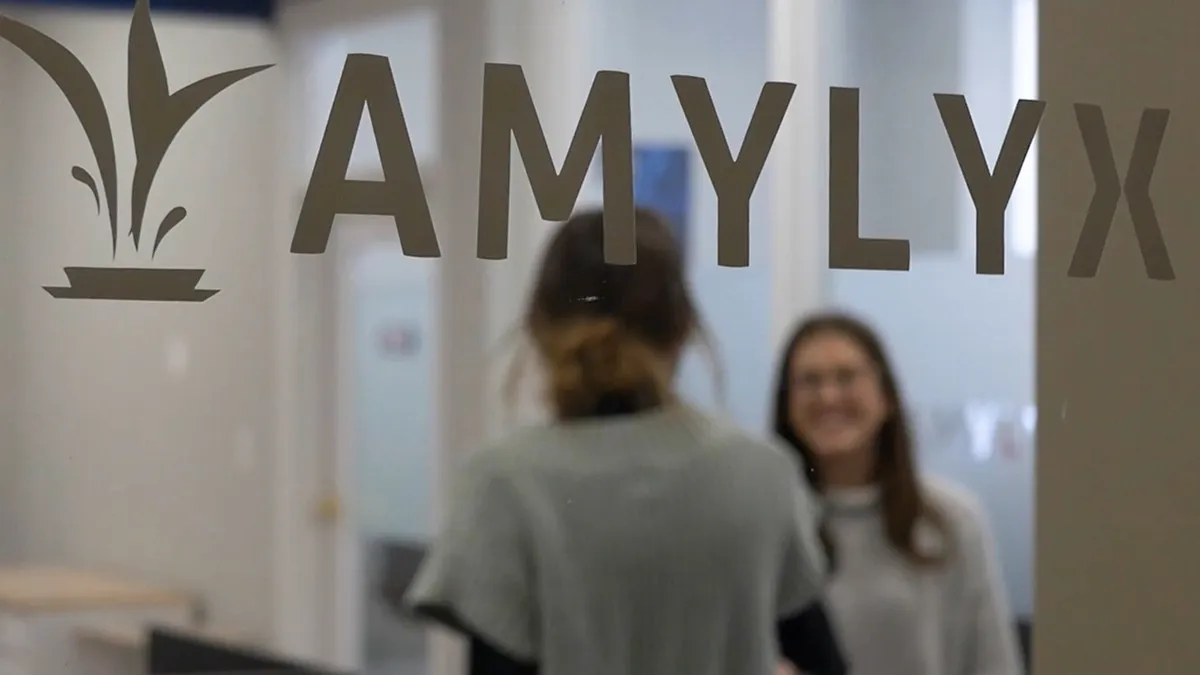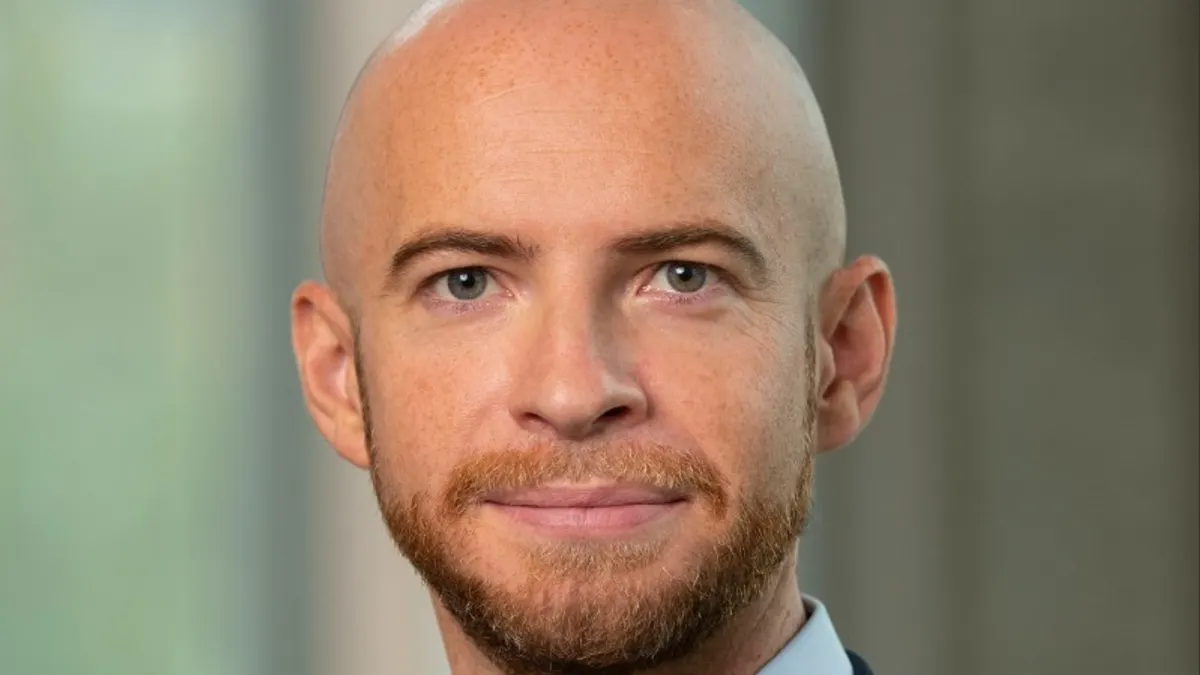Early-stage drug development typically comes with a heaping side of financial risk. As a result, promising academic research discoveries can languish in the uncertain R&D stages because there is no commercial funding to prove their market potential. Increasingly, nonprofits are stepping in to fill this gap, backing new ideas and bringing them to a point where pharma companies are willing to invest and carry them past the regulatory finish line.
In fact, several groundbreaking new drugs approved in recent years for conditions like cystic fibrosis and amyotrophic lateral sclerosis (ALS) were partially backed by charitable donations.
“The nonprofit model is enabling the development and advancement of much-needed solutions that would not otherwise garner support from the investment community because of a lack of commercial viability,” said Mark Veich, president of Advancium Health Network, a New York City-based public charity.
Advancium was launched in February 2022 by the investment firm Deerfield Management and its nonprofit affiliate, Deerfield Foundation, which is looking to embrace the model.
“Advancium’s mission is to advance healthcare and health equity by facilitating philanthropic investment in new ideas, organizations and initiatives that address health economic disparities, underserved patient populations, health equity challenges and difficult-to-treat conditions,” Veich said.
The nonprofit comprises two main organizations: CobiCure, which is aimed at finding therapies and medical devices to treat children with rare, life-threatening diseases; and Cure Innovation Labs, an incubator designed to give early-stage companies access to specialized equipment and resources to help them bring new ideas through R&D. It will primarily work with post-seed, pre-series A companies, according to Veich.
“Cure Innovation Labs is assisting promising-growth companies by reducing their overhead costs and lowering barriers to entry into life-science incubators and the industry more broadly,” he said.
A model for success
Advancium is hoping to achieve some of the success seen by other nonprofit organizations.
“Over the past decade, we have witnessed blockbuster successes born from careful investments by nonprofits,” a 2020 report from the Milken Institute stated.
A shining example is the Cystic Fibrosis Foundation (CFF), which plans to spend a half billion dollars through 2025 in search of a cure for the genetic life-threatening lung disorder. Its past investment already led to the discovery of Kalydeco by Vertex Pharmaceuticals, which was approved in 2012.
“The foundation provided seed funding to Vertex Pharmaceuticals and earned a $3.3 billion payout from the success of the drug Kalydeco, which was recycled back into the R&D efforts within the (cystic fibrosis) community,” states the Milken Institute report. As a CFTR modulator, Kalydeco targets the underlying cause of the disease.
CFF-backed research also helped lay the groundwork for other critical drug breakthroughs in this category, including Vertex’s combination therapy Trikafta, which came on the market in 2019 as a new option for many people with cystic fibrosis, and was heralded as a “breakthrough” by the FDA. Most recently, Trikafta showed in a long-term study to maintain a “historic” improvement in lung function over two-and-a-half years.
"Greater support and infrastructure at these stages can enable the pursuit of more innovative ideas, enable higher probabilities of success, and instill a proper commercial mindset."

Mark Veich
President, Advancium Health Network
Similarly, support from the ALS Association — which received a hearty infusion of donations from the Ice Bucket Challenge, a 2014 fundraising effort that went viral — helped pave the way for the September 2022 approval of Relyvrio, a drug by Amylyx Pharmaceuticals. It’s the first approved ALS drug to slow the progression of this devastating neurodegenerative disease and extend survival.
Advancium took note of these earlier successes, and in particular, the model used by the CFF, said Karen Heidelberger, chief partnership and communications officer at Deerfield Management.
“That's an incredible model, how they've been able to work to develop a drug and then are able to continue to work in the space that they're interested in,” she said.
Funding progress
A $30 million donation to Advancium from the Maxine and Stuart Frankel Foundation in October 2022 will help support both CobiCure and Cure Innovation Labs, in addition to a new initiative to fund as many as eight experimental drug development projects per year over the next decade, Veich said.
“The projects will focus on promising therapeutic concepts that have a well-defined therapeutic hypothesis but that require further exploratory work to de-risk and determine their viability as prospects for seed funding and other private investment,” he said.
Advancium will work with academic laboratories to evaluate emerging research programs.
“This program will focus on three key and essential activities: reproducing academic studies to ensure validity, the design of optimized molecules for validation of disease effect, and the creation and use of biomarkers to prove the effect on disease in a cost-effective manner,” Veich said.
Currently, these are areas where research often falls short.
“Only about 50% of insights produced in academic laboratories can be reproduced in industrial laboratories,” he said. “Before large sums of capital are invested in future experiments, it is essential that the basic observations that led to the idea for a new therapeutic are validated through reproduction.”
The same is true when it comes to compound identification.
“Identifying the right compound to test is a critical activity that academic researchers often struggle with. In many instances, there is no means to do this at all,” Veich said.
And biomarkers are crucial not only to help predict a drug’s efficacy, but to evaluate its effects on the target disease in animal models. It’s hoped that by increasing funding for promising R&D, Advancium will also help to reduce the temptation for researchers to seek private funding before thoroughly vetting or optimizing compounds.
“This dynamic contributes significantly to the high rate of industry drug development failures,” Veich said.
Through CobiCure, Advancium is not only targeting some of the common problems that plague the industry as a whole but also those in the rare disease space, which often struggles to get funding due to small patient populations.
“Given its structure, CobiCure can focus solely on pursuing opportunities that address unmet needs and have the biggest impact on pediatric patient populations, regardless of the return on investment,” he said.
Overall, Advancium hopes to better address unmet needs and underserved patients.
“Greater support and infrastructure at these stages can enable the pursuit of more innovative ideas, enable higher probabilities of success, and instill a proper commercial mindset and approach at the earliest phases of the research and development process,” Veich said.
















